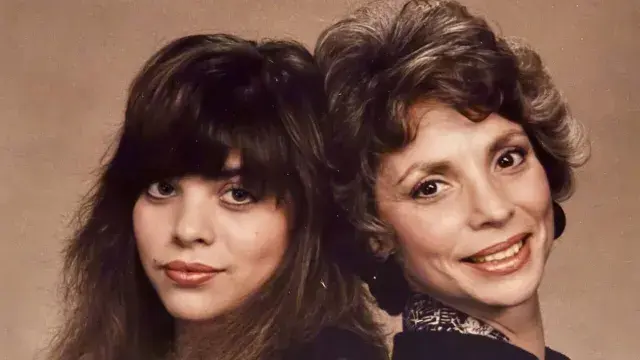Daughters' cancer brought reader and writer together
- janetsg4
- Jul 1, 2025
- 3 min read
BY JANET SILVER GHENT

On her right wrist, Hillary Farkas wears an alphabet bracelet with the name Brett. On her left wrist, she wears stretchy bracelets inspired by daughter Brett’s designs.
“The last night of her life, we said goodbye to her instead of good night,” Hillary wrote on the Colorectal Cancer Alliance website.
Along with a picture of Brett, Hillary posted a personal plea asking people to schedule colonoscopies. And in December at Saratoga’s Congregation Beth David, she and fellow congregant Cyndi Sherman hosted a “Brett’s Bracelets ’n Beads” workshop sponsored by Beth David Women. At the event, participants made stretchy bracelets and raised money for colon cancer research. Cyndi’s daughter Jenessa Schwartz, a graduate, teacher and dean at Yavneh Day School in Los Gatos, passed away of colon cancer in 2023 at the age of 40.
“If only Brett had undergone a colonoscopy after she had survived breast cancer,” Hillary told me over dinner in Los Altos the night before Mother’s Day, a particularly sad time for her family. “If only” lingers in a mournful key because Hillary and her husband, Stan, had pleaded with Brett to have a colonoscopy, but she resisted.
“Brett should have had a baseline colonoscopy when she turned 50, or even earlier since she was a breast cancer survivor from 11 years before,” Hillary wrote on the Colorectal Cancer Alliances website. “But she didn’t.”
My husband and I met Hillary and Stan Farkas a few months after she wrote to me in response to my February column about my return to Judaism. She remarked on our parallel lives as daughters of secular parents and how we both came back to Judaism as adults. A version of her email appeared in J. earlier this year.
When Hillary first wrote to me, we didn’t know just how parallel our lives were.
When I Googled Hillary’s name, I nearly fell off my chair. I realized that decades before I met Hillary, her daughter passed through my life.
Back in 1993, Brett was one of only two or three Jewish students in a communications class I taught at San Jose State. I had fond memories of the striking, dark-haired girl who sometimes wore a cute cap. I would bump into her at a nearby bagel store where she worked part time. Brett always greeted me warmly.
Wrote Hillary: “I got a real shock reading that you knew and remembered my daughter, Brett, even though I never mentioned her name in the story I wrote to you.”
She added that Brett would have said, “Of course, she remembered me. Who wouldn’t?”
The parallels between our lives are even more extensive than that. Hillary is a year younger than I am, and our daughters were born a month apart in 1969. In addition, they both survived stage 3 breast cancer, which Brett developed when she was 42.
My own daughter, Niki, who turned 56 in May and is now a grandmother, was diagnosed at the age of 50. We have no breast or colon cancer in our family.
“Sit down before you read this!” Niki wrote to me in an email in 2021. “I have invasive carcinoma breast cancer that has metastasized and spread to my lymph nodes…. P.S. Emailing me back is much safer if you would like to do that, as then you don’t have to worry that I will see your sadness.”

Amid Covid restrictions, Niki and I emailed, texted and shared favorite psalms and songs. I sent her Psalm 121, my favorite, which begins with “I look to the hills.” HaShirim, my Jewish community chorale, dedicated Leon Sher’s “Heal Us Now” to Niki, who watched us sing via Zoom.
Over the next few months, Niki underwent a double mastectomy, a hysterectomy and other surgeries as well as chemotherapy. Unlike Brett, Niki also had several colonoscopies over the last few years. Her oncologist insisted on it.
Brett, too, underwent double mastectomies, chemo, radiation and other surgeries, but she chose not to undergo a colonoscopy until it was too late.
Now Hillary encourages people to get colonoscopies and lets them k)now that insurance covers baselines colonoscopies for anyone age 45 or older. Colon cancer is second only to lung cancer in annual cancer mortality, according to the American Cancer Society. About 53,000 colon cancer deaths are predicted in the U.S. for 2025.
“Don’t wait” to get a colonoscopy, Hillary wrote on the website. “There is no history of colon cancer in our family. And now … there is no daughter.”
Janet Silver Ghent, a retired senior editor at J. The Jewish News of Northern California, where this article appeared on June 27, 2025.





Comments